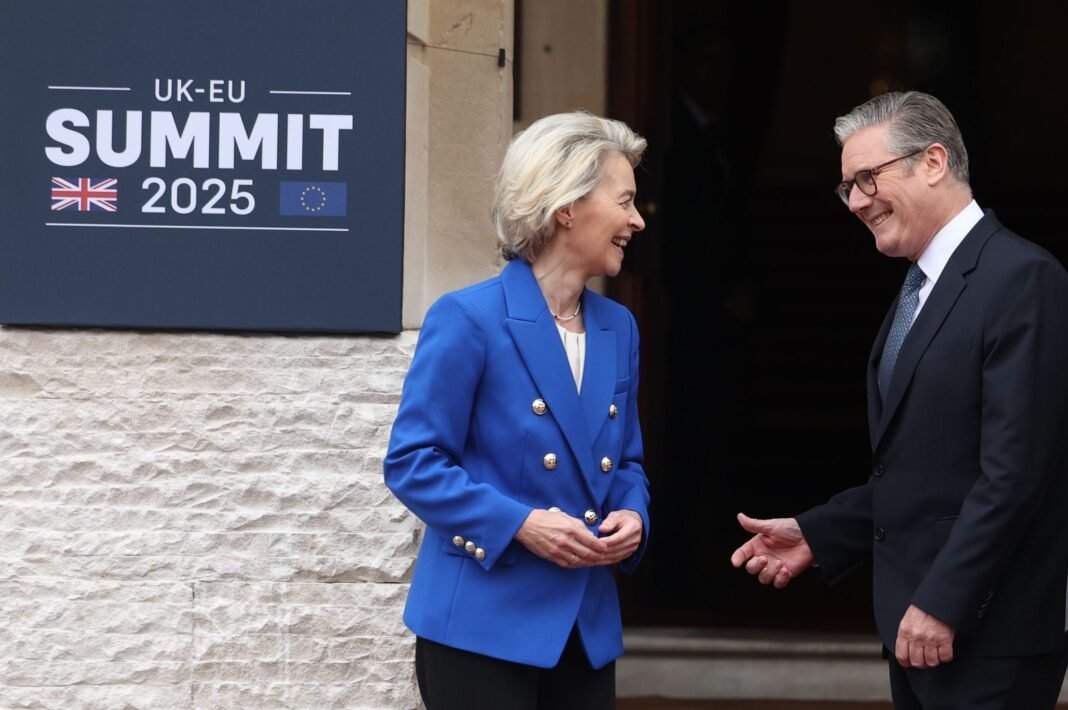The UK-EU trade relationship has entered a new chapter, following a summit between British and European leaders in London. Prime Minister Keir Starmer and Foreign Secretary David Lammy met top EU officials to finalise a set of targeted reforms.
However, the UK government set strict boundaries before talks began. These rules excluded any return to the single market, customs union, or freedom of movement. As a result, the scope of changes remained limited.
This created political tension from both sides. Some Brexit supporters viewed the reforms as a betrayal of original promises. Critics warned the deal involved accepting EU rule changes without full control.
Others who favour deeper EU ties saw the agreement as weak. They argued that it lacked bold steps and ignored key areas of friction. Despite this, the government believes most voters want small, practical improvements rather than a full reset.
Starmer told business leaders that Britain had strengthened trade ties with global powers. He highlighted deals with the EU, the United States, and India. These agreements were framed as proof of renewed economic momentum.
The deal with the US helped protect auto industry jobs. The Indian agreement opened new doors for exporters. But the UK-EU trade relationship remains central due to the scale of trade between both sides.
Although progress was made, several issues remain unresolved. These include youth mobility, mutual recognition of qualifications, and border arrangements. Changes to airport checks for UK travellers now depend on decisions by individual EU countries.
European Commission President Ursula von der Leyen confirmed that the UK had chosen to accept evolving EU rules. Government ministers argued this move was necessary to secure smoother trade.
Some political voices warned this shift handed too much power to Brussels. However, ministers defended it as a balanced and beneficial trade-off.
The new agreement also introduces annual UK-EU summits. These meetings will monitor progress and negotiate future changes. The government called this a reset. But the evolving UK-EU trade relationship signals a lasting shift rather than a one-off fix.
Future governments may choose different paths. Yet continued engagement with the EU now appears permanent.
For more political updates, visit London Pulse News.


